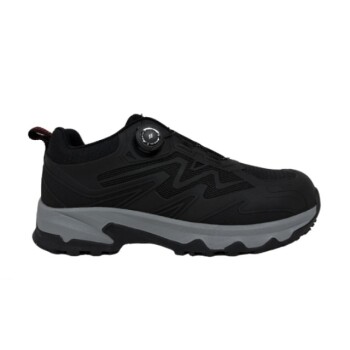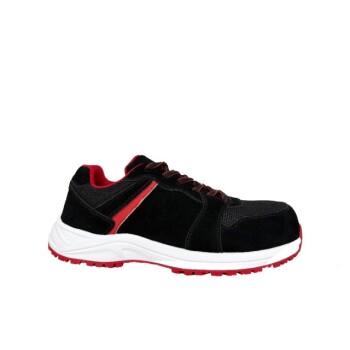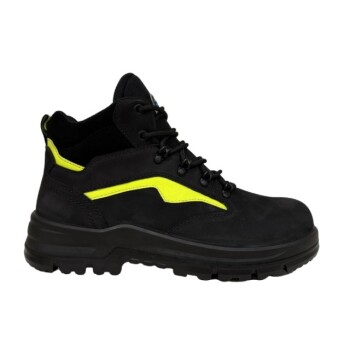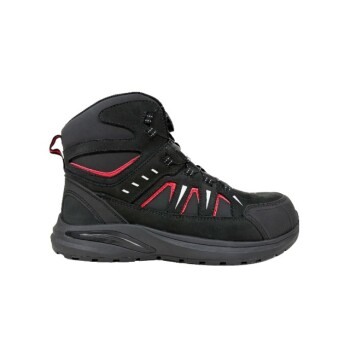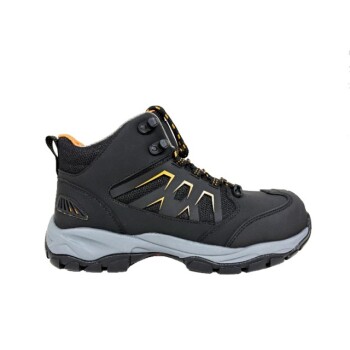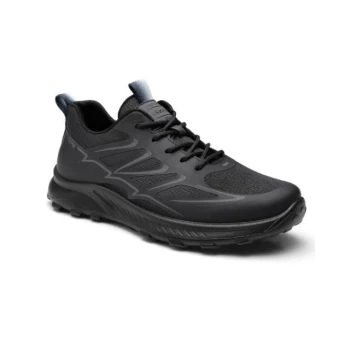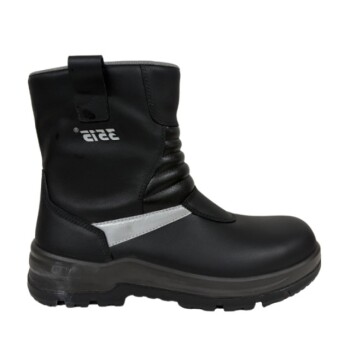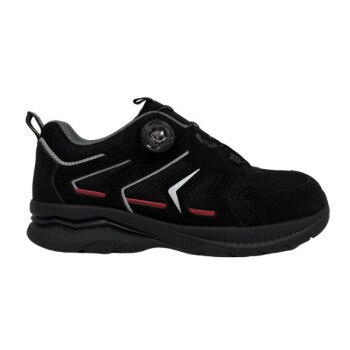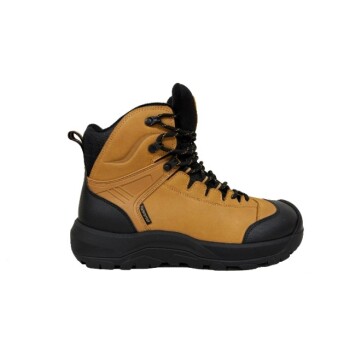At its core, slip-resistant footwear is essential for anyone who works in environments where floors can become wet, greasy, or otherwise slippery. This includes professionals in the food service, medical, and industrial sectors, as well as older workers who face a greater risk of serious injury from falls.
The decision to wear slip-resistant shoes isn't about a specific job title; it's a direct response to your environment. If your daily routine involves navigating potentially slick surfaces, this footwear is a non-negotiable tool for personal safety.
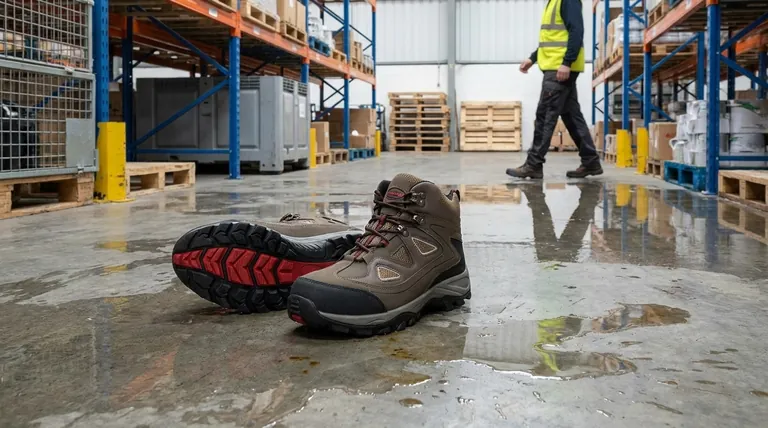
The High-Risk Environments Driving the Need
Understanding the specific hazards of an environment is the first step in appreciating the role of proper footwear. Slips, trips, and falls are among the most common non-fatal workplace injuries, and the environment is the primary cause.
The Food Service Industry
Restaurant kitchens and service areas are rife with hazards. Spilled liquids, grease from fryers, and constantly mopped floors create a persistently slick environment where standard shoes fail.
Healthcare and Medical Settings
Hospitals and clinics require pristine conditions, leading to frequent mopping and polishing of smooth floor surfaces. Unexpected patient spills can also create immediate slip hazards for staff moving quickly.
Industrial and Factory Work
Manufacturing and industrial sites often have floors contaminated with oils, lubricants, chemicals, or water. These substances drastically reduce the friction needed for stable footing on concrete or metal surfaces.
The Amplified Risk for Older Individuals
For older adults, the consequences of a fall are significantly more severe. Proactively wearing slip-resistant shoes, even outside of a formal work environment, is a critical measure to prevent life-altering injuries.
What Makes a Shoe Truly Slip-Resistant?
The term "slip-resistant" is not a marketing gimmick; it refers to specific design principles and materials engineered to maximize traction. The effectiveness of the shoe is determined almost entirely by its outsole.
The Critical Role of the Outsole Material
The material of the sole is your first line of defense. Soft rubber is generally the superior material, as it offers excellent grip and can conform to microscopic variations on a floor surface, especially in wet conditions.
Tread Pattern and Design
Effective slip-resistant shoes feature deep, multi-directional grooves in their tread pattern. This design works by channeling water, oil, and other contaminants out from under the sole, allowing the shoe to make direct, solid contact with the floor.
Look for Proven Performance
While many shoes claim to be slip-resistant, look for those that have undergone standardized testing. Industry certifications provide an objective measure of a shoe's ability to maintain traction on various slick surfaces.
Understanding the Trade-offs and Key Considerations
Choosing the right shoe is about more than just the sole. A shoe that isn't worn because it's uncomfortable or impractical offers no protection at all.
Beyond Slip Resistance: Total Foot Protection
In many industrial settings, slip resistance is just one required feature. Your role may also demand protection from falling objects (steel toes), punctures (reinforced soles), or chemical exposure.
The Balance of Comfort and Durability
A safety shoe is useless if it's too uncomfortable for an eight-hour shift. Look for features like proper cushioning, arch support, and a roomy toe box to accommodate natural foot swelling throughout the day. This must be balanced with durable materials that won't require frequent replacement.
The Importance of Maintenance
Even the best slip-resistant shoes lose their grip if the treads become clogged with dirt and grease or are worn smooth. Choose a shoe that is easy to clean and inspect the soles regularly for wear.
How to Choose the Right Pair for Your Goal
Your specific environment and daily tasks should dictate your choice.
- If you work in a kitchen or restaurant: Prioritize a shoe with exceptional oil and water resistance and a sole that is easy to wipe clean.
- If you work in a hospital or clinic: Focus on certified slip resistance for wet floors combined with superior all-day comfort and support for long shifts.
- If you work in a factory or on a construction site: Select a shoe that pairs slip resistance with the required industrial safety features, like steel toes and puncture-proof soles.
- If your concern is general stability due to age: Choose a comfortable, well-fitting daily shoe with a high-quality, certified slip-resistant rubber sole.
Investing in the right footwear is a direct investment in your personal safety and well-being.
Summary Table:
| Who Needs Slip-Resistant Shoes? | Key Reasons |
|---|---|
| Food Service Workers | Grease, water, and constantly mopped floors create slick surfaces. |
| Healthcare Professionals | Frequent floor cleaning and potential spills in hospitals and clinics. |
| Industrial/Factory Workers | Floors contaminated with oils, chemicals, or water on hard surfaces. |
| Older Individuals | Higher risk of severe injury from falls, making prevention critical. |
Protect your workforce with professional-grade safety footwear from 3515.
As a large-scale manufacturer, we produce a comprehensive range of certified slip-resistant shoes and boots for distributors, brand owners, and bulk clients. Our production capabilities encompass all types of occupational footwear, ensuring your team has the right protection for any high-risk environment—from kitchens and hospitals to industrial sites.
Contact 3515 today to discuss your bulk footwear needs and enhance workplace safety.
Visual Guide
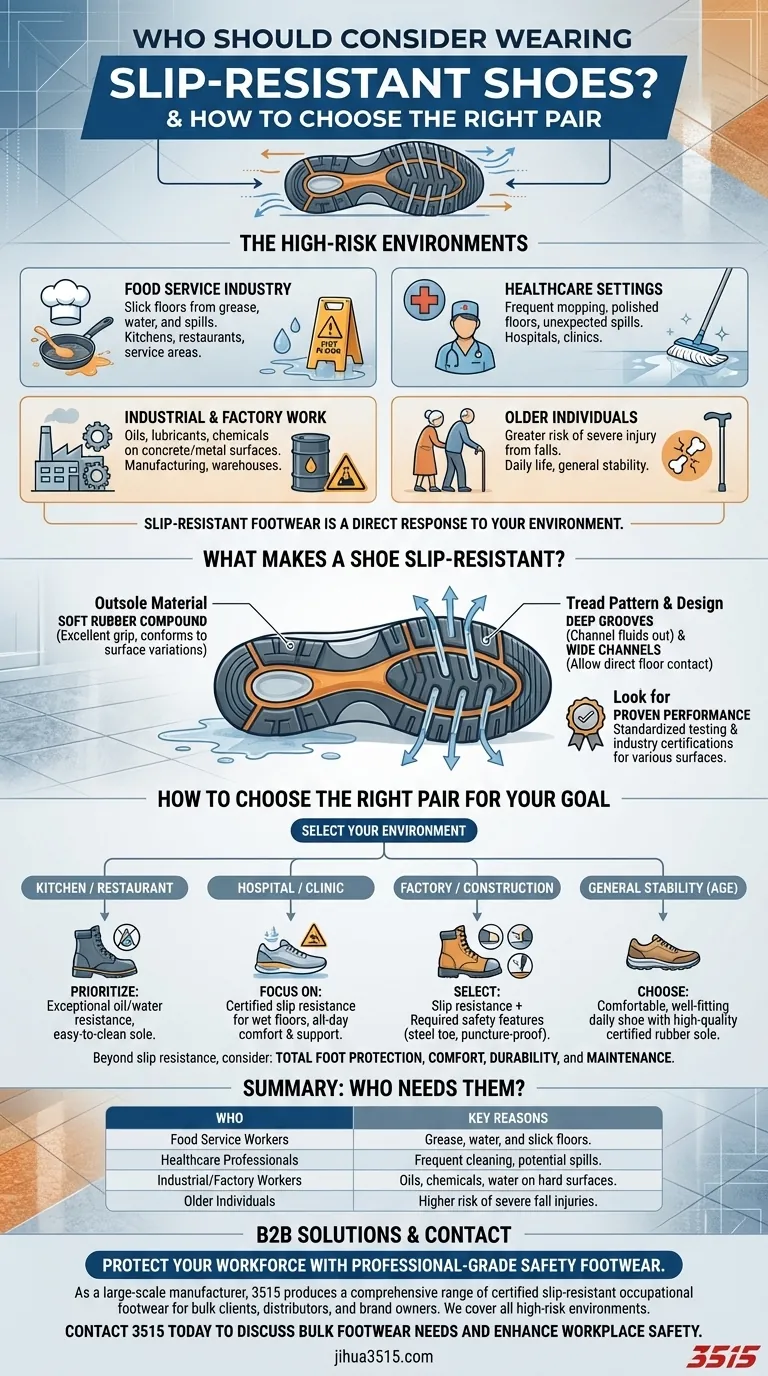
Related Products
- Safety Footwear Wholesale Manufacturer for Custom OEM/ODM Production
- Advanced KPU Athletic Safety Shoe with Steel Toe Cap Anti-Slip Rotary Lacing System
- Premium Suede Sport Safety Shoes for Wholesale & Bulk Orders
- Wholesale Premium Waterproof Nubuck Safety Shoes Boots
- Wholesale Customizable Safety Boots Durable & Protective Footwear Manufacturing
People Also Ask
- How does the tread pattern on slip-resistant shoes work? The Science of Staying Upright
- What is the significance of tread patterns in non-slip shoes? Prevent Slips with Expert Sole Design
- How is the slip resistance of the boot tested? Learn the Science Behind Certified Grip
- How does the use of observational ergonomic tools to assess the wear status of slip-resistant shoes contribute to safety?
- What are some pros mentioned for women's non-slip shoes? Boost Safety, Comfort & Style
- How do slip-resistant safety shoes prevent accidents in hotel catering? Mastering Kitchen Safety & Traction
- What makes a shoe classified as non-slip? The Science of Sole Design for Maximum Grip
- What are the six common types of non-slip shoes? Find the Perfect Grip for Your Work Environment

